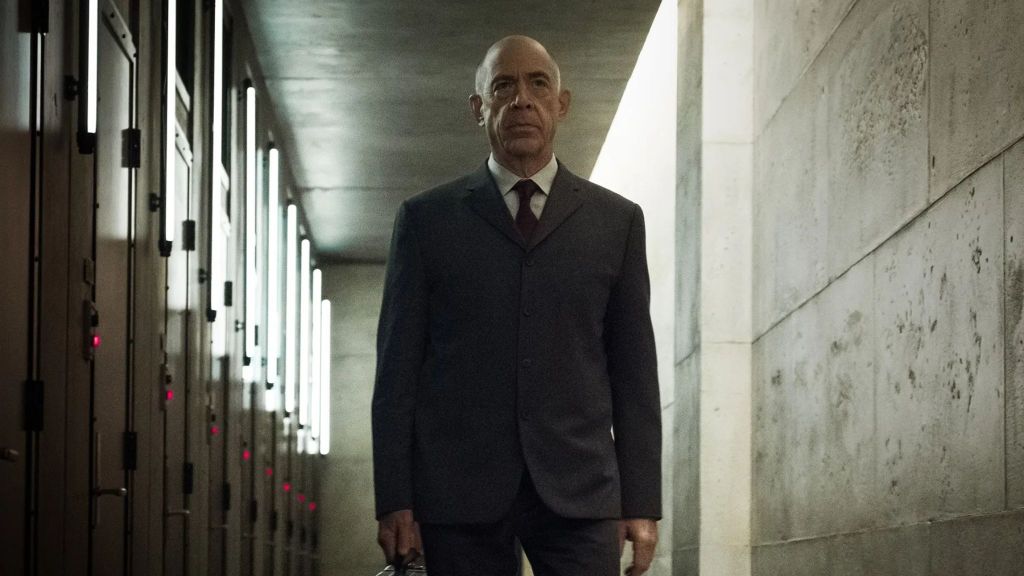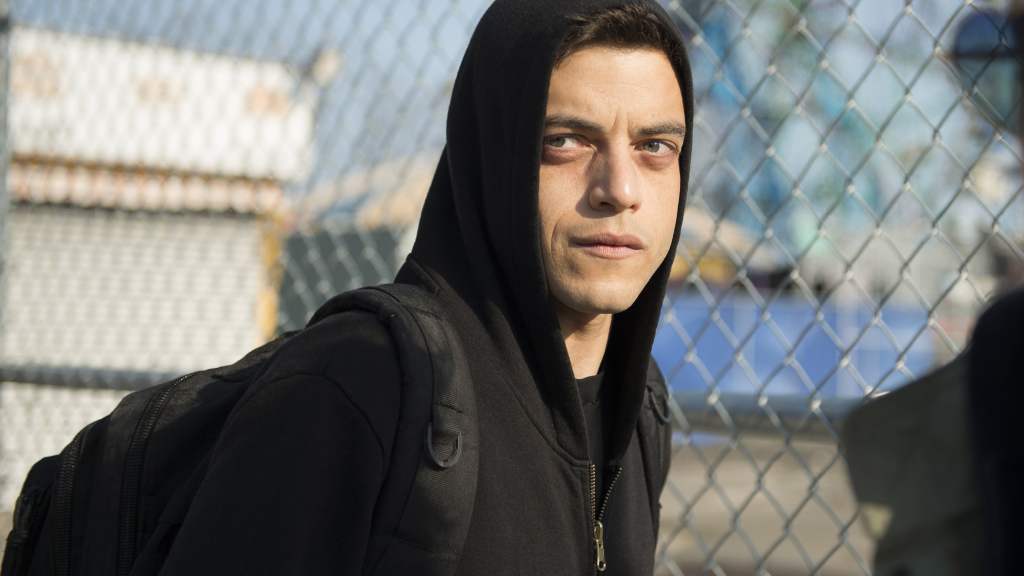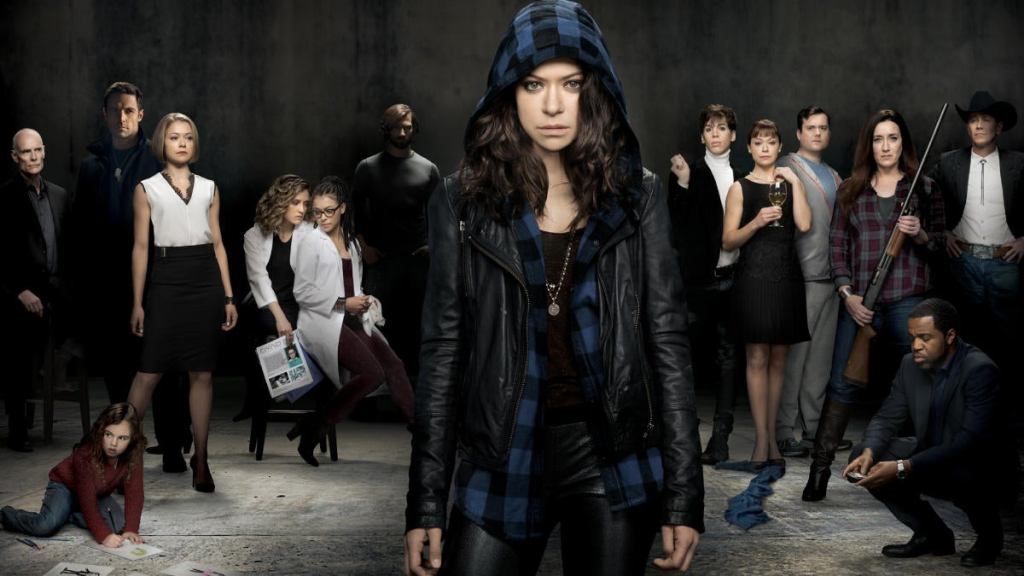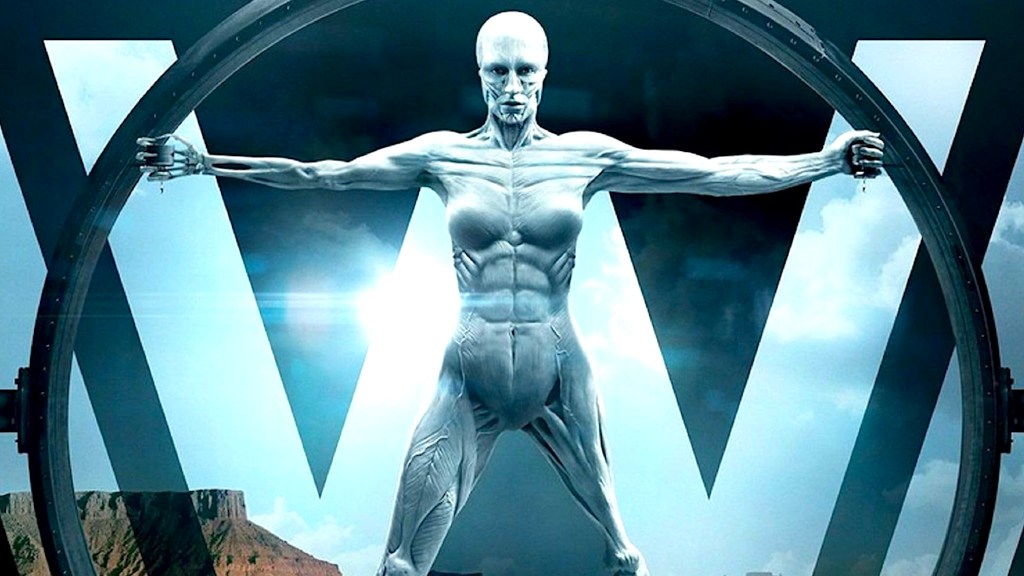Apple TV+’s mind-bending workplace thriller Severance quickly established itself as one of television’s most distinctive and thought-provoking series. The show’s premise of surgically separated memories between work and life created a perfect foundation for exploring themes of corporate control, identity fragmentation, and the dehumanization of modern work. Furthermore, within two seasons, the show has cemented its place in the pantheon of intelligent science fiction that balances high-concept ideas with intimate character studies. What makes Severance particularly special is its ability to create an eerie parallel to our own increasingly blurred boundaries between professional and personal spheres, all while wrapping its social commentary in meticulous production design and a gradually unfolding mystery that keeps viewers questioning everything they see.
Videos by ComicBook.com
For those who appreciate Severance‘s multilayered narrative and are searching for their next television obsession, there are several mind-bending sci-fi series offering similar explorations of reality, identity, and institutional control. Here’s our pick of the seven must-see shows for Severance fans:
Black Mirror

Charlie Brooker’s anthology series Black Mirror delivers concentrated doses of technological anxiety through standalone episodes that examine how emerging technologies might transform human experience in disturbing ways. Though each episode features different characters and settings, Black Mirror maintains a consistent tone of existential dread as it explores how our tools can become traps. Episodes like “The Entire History of You” imagine a world where every memory can be recorded and replayed; “White Christmas” features consciousness copying and isolation, while diving deep into questions about what constitutes identity when memories and perception can be manipulated.
In addition, the series’ visual approach emphasizes clean, minimalist aesthetics that make technological horrors seem all the more disturbing through their mundane presentation. While the anthology format means viewers don’t get the same long-form character development of Severance, Black Mirror compensates by delivering complete, thought-provoking stories that can be consumed individually, making it perfect for viewers who want to explore similar themes through different conceptual lenses.
Counterpart

J.K. Simmons delivers a masterclass in dual performances in this criminally underappreciated series about a low-level UN employee who discovers the agency he works for is hiding a doorway to a parallel dimension. When Howard Silk (Simmons) meets his counterpart from the other side — identical in appearance but vastly different in personality and life experience — he’s drawn into a cold war between parallel worlds that have diverged in subtle but profound ways.
The show’s exploration of duality examines how identical individuals can develop into entirely different people based on their circumstances and choices, creating a fascinating study of nature versus nurture on a grand scale. Both versions of Howard must navigate a labyrinthine conspiracy spanning both worlds, with neither fully understanding the forces manipulating them. Counterpart combines the retro aesthetics of classic spy thrillers with high-concept science fiction, creating a unique atmosphere of paranoia and wonder. The slow-burn pacing rewards patient viewers as the show gradually expands its mythology while keeping the human drama at its center.
Mr. Robot

Sam Esmail’s hacker thriller Mr. Robot follows Elliot Alderson (Rami Malek), a cybersecurity engineer who moonlights as a vigilante hacker while battling dissociative identity disorder. As Elliot becomes involved with an anarchist hacker collective called “f society,” he’s drawn into a plot to erase all consumer debt by attacking one of the world’s largest corporations. The series’ exploration of fractured identity and unreliable perception creates a constantly shifting reality where viewers must question everything they see through Elliot’s perspective, not unlike Severance. Esmail’s visual innovation includes unconventional framing, disorienting perspective shifts, and fourth-wall-breaking narration that puts viewers inside Elliot’s troubled mind. The series examines the intersection of technology, mental health, and corporate power, suggesting that our digital lives have become extensions of ourselves that can be both liberating and confining.
[RELATED: Severance: Every Department on Lumon’s Severed Floor (And What They Do)]
Devs

Alex Garland’s limited series centers on software engineer Lily Chan (Sonoya Mizuno) as she investigates the quantum computing firm she believes is responsible for her boyfriend’s disappearance. When she manages to infiltrate the company’s secretive “Devs” division, she discovers a project with profound implications for our understanding of free will and determinism. The enigmatic tech CEO Forest (Nick Offerman) has built a quantum system capable of perfectly simulating reality based on cause and effect, effectively allowing his team to see into the past and predict the future with unsettling accuracy. Garland’s meticulous visual style creates beautiful and unsettling environments, particularly the quantum computing facility housed in a perfectly symmetrical structure suspended in electromagnetic fields.
The series strikes a delicate balance between hard science fiction concepts and deeply human motivations, as Forest’s true goal is revealed to be far more personal than his corporate ambitions suggest. Devs rewards viewers who enjoy pondering philosophical questions about choice, destiny, and the nature of consciousness within a narrative that maintains its mystery until the final revelations. As such, it’s a perfect follow-up to Severance.
Maniac

Maniac stars Emma Stone and Jonah Hill as two strangers who connect during a pharmaceutical trial for a drug that claims to cure all mental illnesses. The experimental treatment forces patients to confront their traumas by reliving them through a series of induced dreamscapes, creating shared hallucinatory experiences where the participants play out different roles in various genres and time periods. Director Cary Joji Fukunaga creates a world that combines 1980s technology with futuristic advancements, resulting in a disorienting yet visually compelling environment. As Annie (Stone) and Owen (Hill) progress through the trial’s stages, their subconscious minds begin to merge in unexpected ways, creating connections that transcend the physical limitations of the experiment.
The series explores how trauma shapes identity and questions whether technological shortcuts to mental wellness can ever replace the messy, necessary process of emotional growth. Maniac balances its surreal elements with genuine emotional depth, particularly in its portrayal of Annie’s grief and Owen’s struggle with schizophrenia, making its fantastical elements feel grounded in authentic human experience.
Orphan Black

Tatiana Maslany’s tour-de-force performance as multiple clones discovering their origins propels Orphan Black, a series about identity and corporate exploitation. When con artist Sarah Manning witnesses the suicide of a woman who looks exactly like her, she assumes the dead woman’s identity only to discover she’s one of several genetically identical individuals created as part of an illegal cloning experiment. As Sarah meets more of her “sisters,” each with distinct personalities and lives, she’s drawn into a conspiracy involving biotech corporations, religious extremists, and military interests, all fighting for control over the clones’ destiny.
Maslany’s ability to create completely distinct characters with the same face — often appearing in scenes together — grounds the high-concept premise in believable human drama. The series gradually expands its mythology to explore questions about bodily autonomy, scientific ethics, and the nature versus nurture debate. While the conspiracy elements grow increasingly complex, the emotional core remains the bonds formed between these women who discover sisterhood in the most unlikely circumstances. This mix of deep philosophical questions with layered character study makes Orphan Black ideal for Severance fans.
Westworld (Season 1)

The first season of HBO’s ambitious series Westworld takes place in a futuristic theme park where lifelike androids called “hosts” exist to fulfill human guests’ fantasies. As some hosts begin experiencing glitches in their programming, retaining memories that should be wiped and questioning the nature of their reality, they embark on journeys of self-discovery that challenge the park’s fundamental power structures. The narrative unfolds across multiple timelines, following host Dolores Abernathy (Evan Wood) as she gradually awakens to the truth of her existence and park programmer Bernard Lowe (Jeffrey Wright), whose investigation into the hosts’ emerging consciousness reveals shocking truths about his own identity.
The park serves as both setting and metaphor, with its carefully constructed Wild West narratives mirroring how human beings create stories to give meaning to their experiences. While the series eventually spawned two follow-up seasons, Westworld’s early cancellation left many mysteries unsolved. Fortunately, Season 1 of Westworld works as a perfect standalone story, making it worth your time.
What other TV shows would you recommend to Severance fans? Let us know in the comments!








